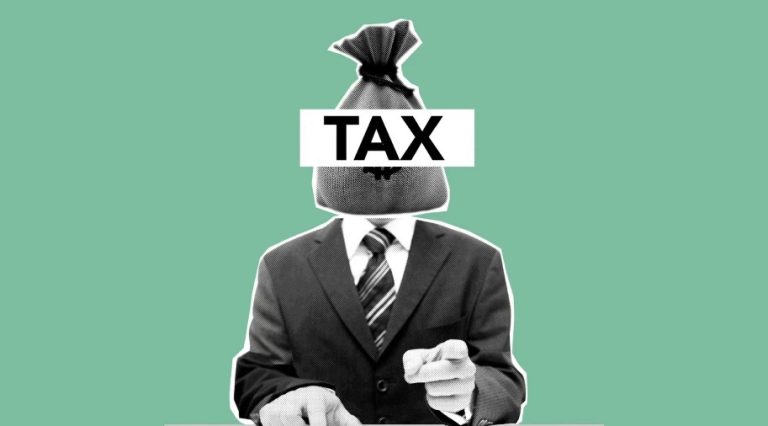In the UK, the role of a trustee in managing property within a trust can often lead to confusion about who actually owns the property. Many people mistakenly believe that a trustee is the true owner of the property they manage.
However, the reality is that a trustee holds only the legal title to the property, while the beneficiary holds the equitable title, which gives them the right to benefit from it. This article aims to clarify the legal framework surrounding trusteeship and explain exactly what ownership means in this context.
What is a Trustee?

A trustee is an individual or entity appointed to manage assets—such as property—on behalf of someone else, known as the beneficiary. The role of a trustee is a fiduciary one, which means that they are legally and ethically obligated to act in the best interests of the beneficiary.
Trustees are commonly appointed in scenarios involving wills, family trusts, charitable organisations, or financial agreements where assets need to be managed for another party’s benefit.
In simpler terms, a trustee is a caretaker or guardian of the property. While they hold legal control over the property, their role is strictly to manage it according to the terms of the trust.
They cannot use the property for personal gain or make decisions about the property unless they align with the terms set out in the trust deed and benefit the beneficiary.
Trustee vs Beneficiary: Who Owns the Property?

The key distinction in understanding trustee ownership lies in the difference between legal ownership and equitable ownership.
Legal Ownership
Legal ownership refers to the name on the property’s title, and in a trust, this name will typically be that of the trustee. The trustee, therefore, holds the legal title to the property.
This grants them certain powers, such as the ability to manage the property, make decisions about its upkeep, and even sell it if necessary, as long as their actions follow the stipulations outlined in the trust deed.
However, the trustee does not own the property in the way a homeowner might. Their legal title comes with responsibilities rather than the full rights of ownership. They are bound by the terms of the trust and must always act with the beneficiary’s interests in mind.
Equitable Ownership
Equitable ownership, on the other hand, belongs to the beneficiary. Equitable ownership refers to the right to benefit from the property, including any income it generates or the right to live in the property, depending on the type of trust.
The beneficiary has a financial stake in the property but does not have the right to manage or control it. This division between legal and equitable ownership is a key principle of UK trust law.
For example, consider a property held in trust for a minor. The trustee would manage the property—perhaps renting it out or handling repairs—but the minor would hold equitable title, meaning they will eventually receive the financial benefit of the property, either through rent income or proceeds from a future sale.
Does a Trustee Own the Property in a Bare Trust?

A bare trust is one of the simplest forms of trust and is particularly common in situations where assets, such as property, are being held for the benefit of another party who has full control over how the property is used.
In a bare trust, the trustee’s role is minimal—primarily holding the property in their name for the beneficiary.
In this arrangement, the trustee has no decision-making power over the property. The beneficiary has an absolute and immediate right to both the property and any income generated from it. Essentially, the trustee is a placeholder—holding the legal title to the property until such time as the beneficiary directs them on what to do.
For instance, if a property is placed in a bare trust for a child until they reach the age of 18, the trustee holds the legal title during this period. Once the child reaches adulthood, they can demand full control of the property and instruct the trustee to transfer legal title to them.
Legal Title vs Equitable Title: Key Differences
To understand why a trustee does not “own” the property in a full sense, it is important to break down the concepts of legal title and equitable title.
- Legal Title: The trustee holds the legal title, which gives them the formal right to manage the property, but this role comes with strict responsibilities. The trustee must follow the trust’s instructions and always act in the beneficiary’s best interest. For example, if a trust specifies that the property should not be sold until a beneficiary reaches a certain age, the trustee must abide by that rule.
- Equitable Title: The beneficiary, on the other hand, holds the equitable title. This gives them the right to the property’s financial benefits, such as rental income or proceeds from a sale. The beneficiary cannot usually manage the property or make decisions about it, but they are the ones who ultimately gain from it.
These two forms of ownership divide the responsibilities and benefits of property ownership, ensuring that trustees act as managers and guardians, not owners in the conventional sense.
How Long Does a Trustee Own the Property?

The duration for which a trustee owns and manages property depends primarily on the terms established in the trust agreement, the type of trust, and applicable state laws. Here’s a comprehensive overview:
1. Trust Agreement Terms
- Specified Timeframe: Many trusts outline a specific period during which the trustee will manage the property. This could be until a certain date, until a beneficiary reaches a particular age, or until a specific event occurs (e.g., the beneficiary completes their education).
- Ongoing Management: Some trusts are designed to manage assets indefinitely, especially those set up for multiple generations, though such arrangements are subject to state laws limiting perpetuity.
2. Type of Trust
- Revocable Trusts: In a revocable trust, the grantor retains the ability to alter or dissolve the trust during their lifetime. The trustee’s ownership of the property continues as long as the trust remains active. Upon the grantor’s death or decision to revoke the trust, ownership typically transfers to the beneficiaries.
- Irrevocable Trusts: Once established, an irrevocable trust generally cannot be modified or terminated without the consent of the beneficiaries. The trustee manages and owns the property for the duration specified in the trust, which is often until the fulfillment of certain conditions or for the lifetime of the beneficiaries.
- Testamentary Trusts: Created through a will and activated upon the grantor’s death, the trustee holds and manages the property according to the will’s instructions until the trust’s termination conditions are met.
3. Purpose of the Trust
- Educational Trusts: These may last until beneficiaries complete their education.
- Charitable Trusts: Can be set up to exist as long as necessary to fulfill their charitable purposes, though subject to legal limits.
- Special Needs Trusts: Continue to provide for beneficiaries with special needs without disqualifying them from government benefits, lasting as long as needed.
4. Legal Considerations
- State Laws: Different jurisdictions have varying rules regarding the maximum duration of a trust. Many states have adopted the Uniform Trust Code (UTC), which generally allows trusts to last up to 100 years, effectively addressing the historical “Rule Against Perpetuities” that limited trusts to about 21 years beyond the life of a relevant individual.
- Termination Conditions: Trusts can be designed to terminate automatically upon the occurrence of specific events or can require actions such as court approval to dissolve.
5. Trustee’s Role Duration
- Appointment Terms: Trustees are appointed for the duration of the trust unless they resign, are removed, or become incapacitated. The trust document usually outlines the process for appointing successor trustees.
- Successor Trustees: When the original trustee’s term ends or if they can no longer serve, successor trustees take over management responsibilities, ensuring continuous stewardship of the trust property.
6. Examples
- Living Trust for Estate Planning: A grantor may establish a living trust that manages assets during their lifetime and distributes them upon death. The trustee owns the property only during the trust’s active period.
- Generation-Skipping Trust: Designed to pass assets to grandchildren, the trustee manages the property across multiple generations, lasting until the final beneficiaries are provided for or specific conditions are met.
Trustee’s Powers and Responsibilities Regarding Property
The scope of a trustee’s powers is typically outlined in the trust deed, a legal document that specifies the terms of the trust. Here are some common powers and responsibilities trustees hold in relation to property:
- Managing the Property: Trustees are tasked with managing the day-to-day aspects of the property. This could include organising repairs, paying property taxes, and ensuring that the property is maintained. They must do all of this with a view to preserving or enhancing the property’s value for the benefit of the beneficiary.
- Selling the Property: A trustee may have the power to sell the property, but they must ensure that this action is in line with the trust deed and in the best interest of the beneficiary. For instance, if the trust’s purpose is to provide for a beneficiary’s education, selling the property might be appropriate to fund their schooling.
- Investing Income from the Property: If the property generates income, such as rent, trustees may be responsible for investing this income in a way that maximises benefits for the beneficiary, again following the trust deed’s guidelines.
Trustees have a fiduciary duty to act with care, diligence, and loyalty towards the beneficiaries. They cannot use the property for personal gain or make decisions based solely on their own judgment if those decisions conflict with the trust’s purpose.
What Happens If a Trustee Mismanages Property?

If a trustee fails to properly manage the property or acts against the beneficiary’s interests, they may be held liable for breach of trust. Mismanagement can take many forms, such as selling the property without appropriate consultation, failing to maintain the property, or using trust assets for personal gain.
In such cases, the beneficiaries can take legal action against the trustee. Remedies might include:
- Compensation: The trustee may be required to compensate the trust for any financial losses caused by their mismanagement.
- Removal of Trustee: In serious cases, the court may remove the trustee and appoint a new one if it is deemed that the trustee is not acting in the beneficiaries’ best interests.
The UK’s trust laws provide strict oversight of trustees, ensuring that beneficiaries have recourse if their rights are violated.
Trustee Ownership in the Context of UK Trust Law
In the UK, trustees are subject to a wide range of laws, including the Trustee Act 2000, which outlines the general duties and powers of trustees. The key principle is that trustees must act with due care and diligence.
This means that they are expected to make prudent decisions, as a reasonable person would when managing their own assets.
For example, trustees must ensure that they are acting within the law when making decisions about selling, investing, or using the property. They must also keep clear records of their decisions and how they have managed the trust’s assets.
Failure to comply with these laws can result in legal penalties, and trustees can be held personally liable for any losses suffered by the beneficiaries.
Common Misconceptions About Trustees Owning Property
Given the complexity of trust law, it’s not surprising that many misconceptions exist around trustee property ownership. Some of the most common misunderstandings include:
- Myth: A trustee owns the property outright and can do as they please.
Reality: A trustee only holds the legal title and is bound by the trust’s terms. They cannot use the property for personal benefit. - Myth: Trustees have full control over the property.
Reality: Trustees must follow the rules laid out in the trust deed. Any deviation from those rules could result in legal consequences. - Myth: Beneficiaries have no rights over the property.
Reality: While beneficiaries may not have legal control, they hold equitable ownership and have the right to benefit from the property.
Conclusion
To sum up, while a trustee holds legal title to property, they do not “own” it in the traditional sense. Ownership, in this case, is divided between legal and equitable interests.
The trustee’s role is to manage the property according to the trust’s terms, ensuring that the beneficiary—the equitable owner—receives the full financial benefit. Understanding this division is key for anyone involved in a trust, as it clarifies the roles and responsibilities of both parties.
FAQs About Trustee Own the Property
Can a trustee sell the property without consent?
Generally, a trustee can sell the property if the trust deed allows it, but they must always act in the best interests of the beneficiary and follow the terms of the trust. In some cases, consent from the beneficiary may be required, depending on the trust’s terms.
Is a trustee liable for property debts?
Yes, a trustee can be held responsible for debts related to the property if they mismanage it or fail to meet their obligations, such as paying taxes or maintaining the property. However, trustees are usually indemnified by the trust for debts incurred in proper management.
What is the difference between a trustee and an executor?
A trustee manages property or assets in an ongoing trust, whereas an executor is responsible for administering the estate of a deceased person, including distributing assets according to the will. Executors handle one-time duties after death, while trustees may manage long-term responsibilities.
How long can a trustee manage the property?
A trustee manages the property for as long as the trust specifies. This could be until a certain event occurs, such as the beneficiary reaching a certain age, or for the lifetime of the beneficiary.
Can a trustee be a beneficiary?
Yes, it is possible for a trustee to also be a beneficiary. However, this can create conflicts of interest, so trust law imposes additional checks to ensure that the trustee acts impartially and fairly.
What are the tax implications for a trustee holding property?
Trustees may be required to file tax returns for any income generated by the trust property. In some cases, the trust may be liable for income tax, capital gains tax, or inheritance tax, depending on the trust’s structure.
Can a trustee be removed from managing the property?
Yes, a trustee can be removed if they fail to fulfil their duties or if the beneficiaries petition the court for their removal. The trust deed may also include provisions for removing a trustee if they breach their responsibilities.






